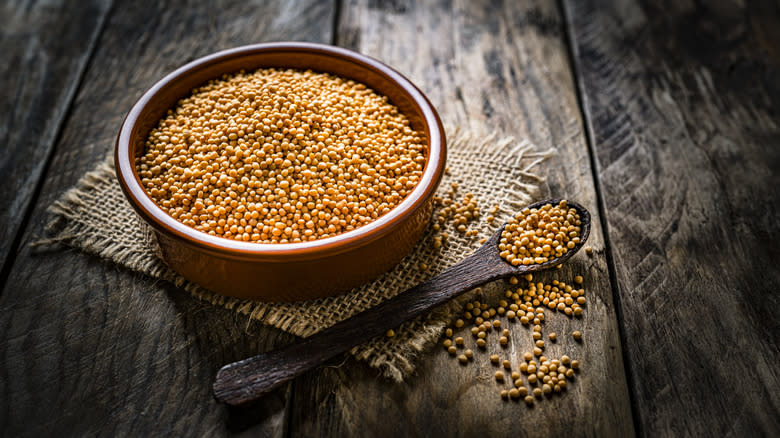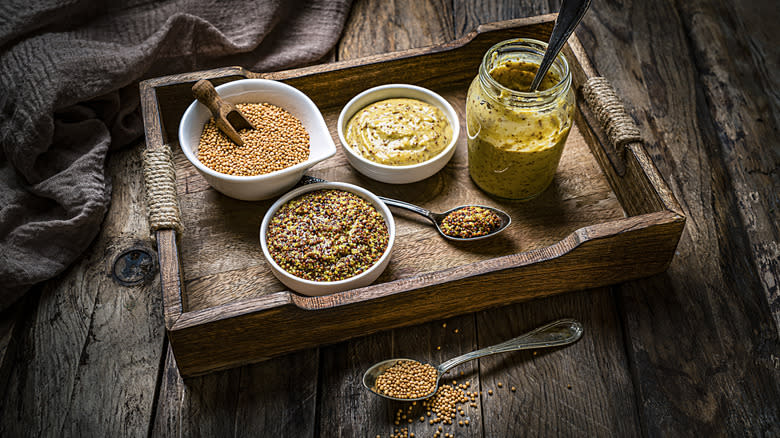Ancient Egyptians Loved Mustard So Much They Put It In Pharaoh's Tombs

Long before we were squirting mustard onto our Chicago-style hot dogs on game day, the mustard plant was considered a highly powerful herb for both ritual and medicine. Historians predict that the Ancient Egyptians were the first to cultivate mustard, which was regarded as a delicacy. Because the meats of ancient times were likely anything but savory or fresh, Egyptians would mask the taste with mustard seed (when crunching down on the seeds, essential oils are released, which results in the pungent flavors we're familiar with).
Interestingly, when archaeologists unearthed King Tutankhamun's tomb, mustard seeds were found among other objects. It's no secret that the tombs of pharaohs were loaded with cherished everyday items from the ruler's time alive as a guide into the afterlife, so this find signals the culture's importance of the seed. What's more, as if human burial wasn't already a heavy topic of discussion, ancient people also used mustard seed as a medicinal remedy for everything from hysteria to the bubonic plague.
The Romans, while experimenting with further uses of mustard seed, were the first to pulverize it and combine it with wine or vinegar, creating a paste. This mustard paste — though not the same as the mustard we eat today — made its first cookbook appearance in an ancient Roman cookery collection called "De re coquinaria," which is estimated to have been written around the 4th century.
Read more: The 20 Best Olive Oils For Cooking
From Graves To Hamburgers

Though it was the Romans who created mustard in paste form, they introduced their discovery to France, where monks began taking its crafting quite seriously. By the 13th century, Pope John XXII of Avignon adored the condiment so much that he employed his "lazy" nephew from Dijon, France with the title of "Grand Mustard-Maker," just so he would never be without his beloved spread.
Nowadays, most mustard isn't made in Egypt, Rome, or Dijon, despite its culturally colorful past. Nepal holds the current title of being the top producer of mustard seed, though the United States produces it as a specialty crop. And it's easy to see why — in 2022 alone, grocery retailers sold 916.9 million pounds of hot dogs in the United States, which are an iconic American mustard vessel. While civilizations of the world may no longer be decorating tombs with mustard seeds, one thing remains clear: Our love of mustard has endured for thousands of years.
Read the original article on Tasting Table.

